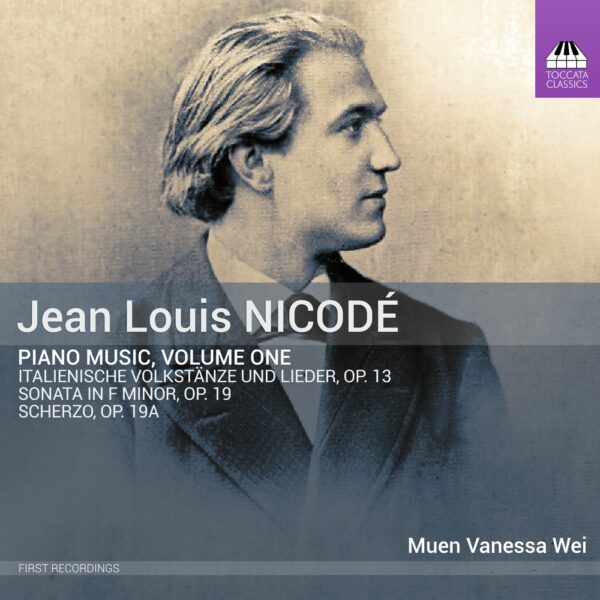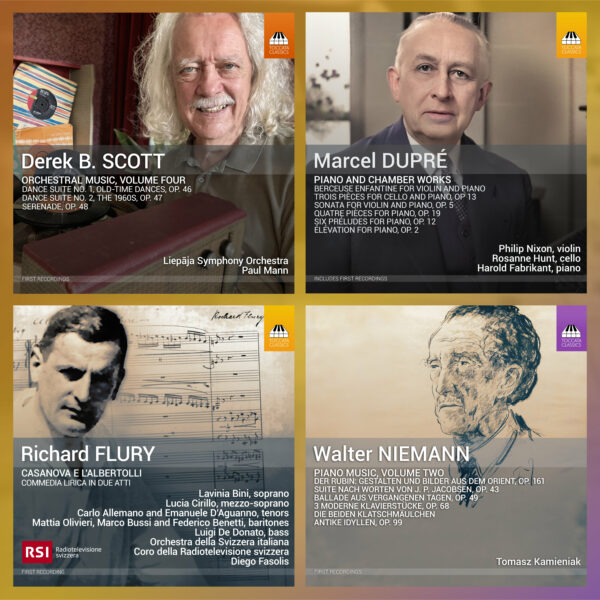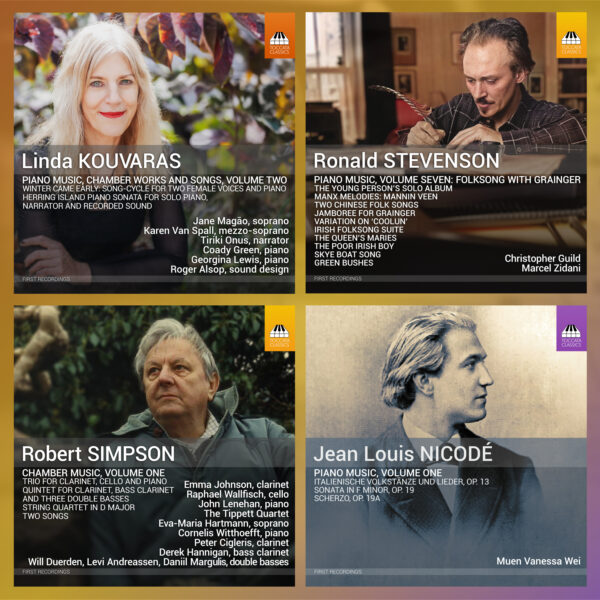Jean Louis Nicodé: Piano Music, Vol. 1
As pianist, conductor and composer, Jean Louis Nicodé (1853-1919) was one of the most highly respected musicians of his day. Born in Posen in Prussia (Poznań in present day Poland), he became a stalwart of musical life in Dresden in the closing years of the nineteenth century. Today his name is as good as unknown, with his music suffering the same fate as his reputation as a performer – although he was a highly accomplished composer. HIs piano music has hints of Chopin, Liszt and Schumann, and the spirit of dance is never far from the surface, but his expansive, and only, piano sonata has a visionary quality with its origins in late Beethoven.
Muen Vanessa Wei, piano
Listen To This Recording:
Italienische Volkstänze und Lieder, Op. 13
- I. Tarantelle (4:25)
- II. Canzonette (5:48)
- III. Barcarolle (2:42)
- IV. Saltarello (6:13)
Piano Sonata in F Minor, Op. 19
- I. Allegro affettuoso (14:23)
- II. Adagio (Weihevoll und sehr gebunden vorzutragen) (9:14)
- III. Menuett. In mässigem Tempo (crotchet = 92) (5:55)
- IV. Rondo. Allegro agitato (minim = 96) (9:02)
- Scherzo, Op. 19a (5:38)
First Recordings



American Record Guide :
‘The young Chinese pianist plays with great clarity and all the necessary inflections. […]
a worthwhile release. […]
—Bruno Repp, American Record Guide, April 2025
Pizzicato :
‘Wei begins by playing the four-part cycle « Italian Folk Dances and Songs op. 13, » which the composer wrote at the age of 25. In just under 20 minutes, we hear dancing and cheerful music.
The nearly 40-minute sonata begins with a passionate Allegro affettuoso. Wei avoids pathos without losing expressiveness. The Adagio is also pleasing to the ear, before a charming minuet leads to a lively and alert finale.
The concluding scherzo is colorful, shimmering and light. Muen Vanessa Wei plays with a pleasant lightness, avoiding heaviness and force. This adds elegance to the music.’
—Remy Franck, Pizzicato
AllMusic :
‘Two notable aspects will become apparent on listening and reflection. One is that Nicodé’s treatment of his influences is fresh and original. […] The second strength is that to weave these influences together effectively is a nifty trick, and Nicodé managed it. […] the transitions [in the first movement] are quite skillfully handled. […] The gentle Menuett third movement, quite an original thing at the time, is also entirely fresh. Wei’s delicate treatment of this movement is terrific, and her playing throughout is fluent. The booklet notes to this Toccata release, heavily footnoted, may well contain the most detailed biographical information on Nicodé anywhere; the album […] is distinctive and interesting for anyone. One awaits the promised further Nicodé music from Wei.’
—James Manheim, AllMusic
Fanfare :
‘The admirable practice of the Toccata label of finding lesser-known composers from the past has often provided the pleasure of discovery. […] , it is often enjoyable and very much worth hearing. So it is with Jean Louis Nicodé. […]
{His piano sonata] is a very enjoyable sonata that holds the listener’s interest for its 38 minutes. […]
The four make for enjoyable listening […]
Chinese pianist Muen Vanessa Wei obviously believes in this music and gives performances of great textural clarity, balancing contrapuntal lines very well. […] William Melton’s expansive program notes are a model of what is required for such an unfamiliar composer, and Toccata’s recorded sound is clear and natural.’
—Henry Fogel, Fanfare